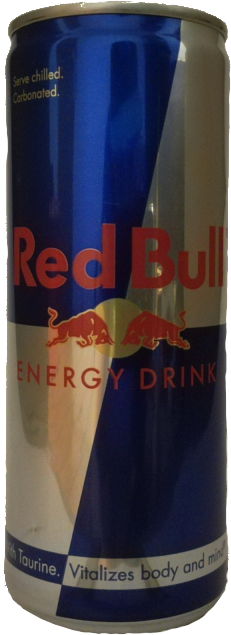Energy Drink Of The Month!
Lorem ipsum dolor sit amet, consectetur adipiscing elit. Donec lacinia vulputate eros nec malesuada. Suspendisse potenti. Sed interdum tempus odio sed sodales. Sed mattis neque vitae urna eleifend tincidunt. Donec sodales dui non sodales vestibulum. Aliquam vel neque non diam lobortis egestas ac a enim. Donec in erat velit. Curabitur ultricies dolor ut magna pretium posuere. Ut vehicula suscipit massa eget feugiat.
Are Energy Drinks For You?
These “performance enhancing” drinks are marketed towards people who are constantly on the go and need a boost of energy to get through the day. This can be something very valuable to college and university students to get them through long study sessions or to those working a long day in the office. The opinion of Energy Drinks Rated is that the primary audience for energy drinks are people between the ages of 16 and 35 as their bodies can best tolerate the harsh substances while getting the benefits of the drinks. Beyond the age of 35, we still think energy drinks are an important source of energy to get you through the day but would suggest sugar or calorie free variants as the body’s metabolism isn’t as effective at getting rid of fat.
Uses of energy drinks are very widespread, some of the best use cases EDR has come across for the use of energy drinks include: during long revision sessions to keep the brain active, while gaming to improve alertness, while driving to maintain awareness on long journeys, and to give you the edge when playing some sports (Note: when used playing sports, energy drinks can give you more energy but this energy burns off quickly so we would suggest not using them for endurance sports and not to use them as the sole method of hydration while playing sports.
Energy Drink Safety
Recommended Dosage
The side effects of consuming a lot of energy drinks are primarily related to the high sugar and caffeine content of which can lead to things such as an irregular heartbeat and nervousness. More than roughly 2 cans a day is considered dangerous as this will likely bring you past maximum recommended daily intakes for substances such as caffeine.
Pregnant or Breastfeeding
Energy drinks are not recommended while you are either pregnant or breastfeeding as the large amounts of caffeine and sugar as well as preservatives, flavours and colouring chemicals could have a negative effect on the child.
Mixing with Alcohol
Consuming energy drinks and alcohol simultaneously is a combination that is very popular and is encouraged by bars and clubs. While energy drinks can mask the effects of alcohol and make you feel better and more awake on a night out they don’t reduce drunkenness. Instead they just mask the drunken sensation and can lead to people thinking they can drink way more than they can handle which is where it becomes unsafe.
Young Children
The large amounts of sugar combined with all the energy contained inside even small energy drinks can have a much more intense effect on small children and is likely to cause very hyperactive behaviour. Because of this and the high caffeine content, Energy Drinks Rated does not recommend anyone under the age of 12 consumes energy drinks. During teenage years the body then develops to a point where it can better handle the contents of energy drinks.
Did you know...
… energy shots are a specialized kind of instant energy drink which come in a 50ml serving packing the same amount of caffeine as a full can without the high calorie content.
… as a contrast to energy drinks, several beverages including “Relax” by Rockstar have been marketed as anti-energy drinks and invoke the opposite effect i.e. they induce drowsiness.
… in 2007 energy drink powders with electrolytes started being sold with a lot of them being branded towards being a performance booster to have when playing sports.
… energy drinks can be mixed with alcohol to fuel your night out such as in bombs; however, this is not recommended as mixing alcohol and caffeine can be dangerous (read the energy drink safety section).
… when the first energy drinks started being produced they were created with some specific use cases in mind, for example, Lucozade Energy was introduced in 1929 to help aid the recovery of hospital patients.
… it was only in 2012 that the phrase “energy drink” was listed in the Merriam Webster Collegiate Dictionary.
Most Common Energy Drink Ingredients
Caffeine
To keep you feeling awake and ready for anything, caffeine is a key ingredient in energy drinks. Typically, a can of energy drink will contain roughly the same amount of caffeine as the equivalent sized cup of coffee; however, consuming it in energy drinks can make it easier to have more quickly. The effects of too much caffeine include headaches, irritability, nervousness and high heart rate.
Sugar
It is well known that energy drinks often contain a lot of sugar, with some energy drinks containing a massive amount of sugar. At worst, drinks such as the Rockstar Punched Energy 500ml contain the equivalent of 20 teaspoons of sugar which is not at all healthy. To avoid risking diabetes and other issues related to high sugar intake, Energy Drinks Rated recommends sugar-free energy drinks if you are consuming them regularly.
Taurine
Despite rumour that this ingredient is derived from bull sperm, it is simply an organic molecule that is present in many organisms, with humans containing roughly the amount of taurine that is in the average 500ml can of energy drink. The effects of the ingredient are something we aren’t certain of, but claims say it can aid athletic performance and help reduce anxiety. That said, we have limited data on why exactly taurine is added to energy drinks.


